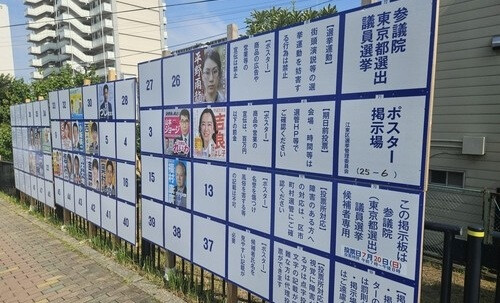
Tokyo, Japan - The Japanese government is embarking on an urgent initiative to strengthen its defenses against foreign-initiated social media (SNS) activities aimed at interfering with its elections. This move comes in the wake of suspicious online activity detected during the recent House of Councillors election, signaling a growing recognition of the threat posed by state-sponsored disinformation campaigns and influence operations.
Digital Minister Masaaki Taira highlighted the severity of the situation in a recent press conference, stating that "various countries are implementing countermeasures, and this is not a problem for Japan alone. It is necessary to strengthen the government's system." His remarks underscore the global nature of the threat and Japan's determination to learn from international precedents while developing its own robust response.
The newly established National Cyber Strategy Office, launched earlier this month, will spearhead the effort. This dedicated body will be responsible for collecting and analyzing domestic and international case studies of election interference, using this intelligence to formulate comprehensive policy and legislative recommendations. The office will also coordinate efforts across various government ministries and agencies to ensure a unified and effective approach.
Concerns intensified following the July 20 House of Councillors election, where several private data analysis firms reported detecting unusual online behavior. This included the widespread dissemination of repetitive posts originating from overseas via automated bot accounts on social media platforms. These findings were promptly reported to the Japanese government, serving as a catalyst for the current push for enhanced vigilance and regulation. The nature of these activities suggests an attempt to manipulate public opinion and potentially influence election outcomes through the spread of misinformation and divisive narratives. There have been reports of foreign actors, including those with alleged ties to Russia and China, engaging in such activities, often employing generative AI and bot farms to amplify their messages and target specific demographics. One particular concern was the reported use of Russian-linked bot accounts to promote a small far-right party, Sanseito, during the upper house election, indicating a deliberate effort to exploit political divisions.
The ruling Liberal Democratic Party (LDP) is reportedly considering legislative amendments to address the issue. Hiroshi Moriyama, the LDP's Secretary-General, indicated that "specific countermeasures, including legal revisions, will be considered." This signals a potential shift towards stricter regulations on social media platforms and possibly enhanced penalties for those found to be engaging in foreign interference. While the specifics of potential legislation are still under discussion, it is likely to include measures to increase transparency regarding the origins of political advertisements and highly disseminated content, and to hold platforms accountable for failing to counter foreign manipulation.
Internationally, countries like the United States, the European Union, and the United Kingdom have already implemented or are in the process of developing measures to combat foreign interference in elections. The EU's Digital Services Act (DSA) imposes strict requirements on online platforms to ensure accountability and transparency, while the UK has introduced a foreign interference offense as part of its online safety bill. These international examples provide a framework for Japan's efforts, suggesting that a multi-pronged approach involving government, technology companies, and civil society will be crucial. Japan is also a participant in the G7 Rapid Response Mechanism, established in 2018, which aims to combat disinformation propagated by foreign states.
The Japanese government's proactive stance reflects a recognition that a robust democracy requires safeguarding the integrity of its electoral processes from external manipulation. By enhancing surveillance, strengthening regulatory frameworks, and potentially enacting new laws, Japan aims to build greater resilience against the evolving threat of foreign social media interference. The ongoing discussions and the establishment of dedicated cyber security entities demonstrate Japan's commitment to protecting its democratic institutions in the digital age.
[Copyright (c) Global Economic Times. All Rights Reserved.]






























